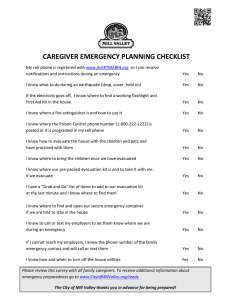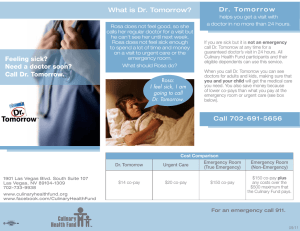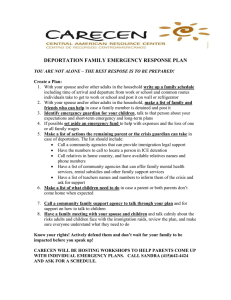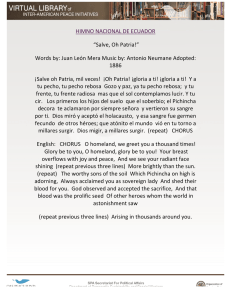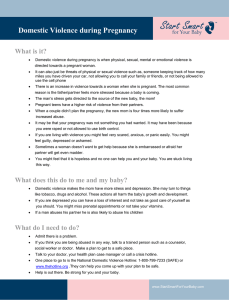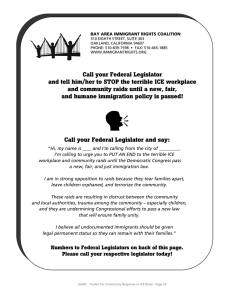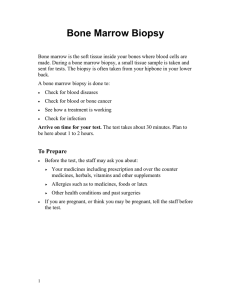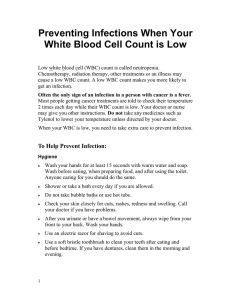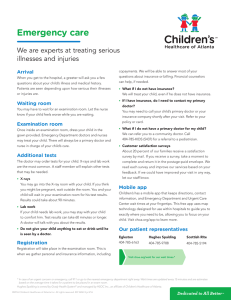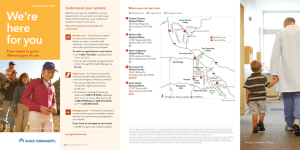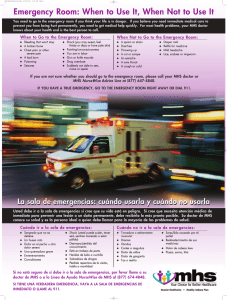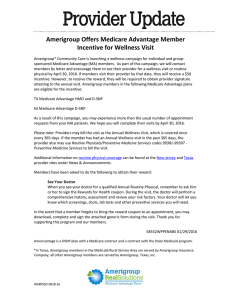Before you go to the emergency room, you should know this!
Anuncio
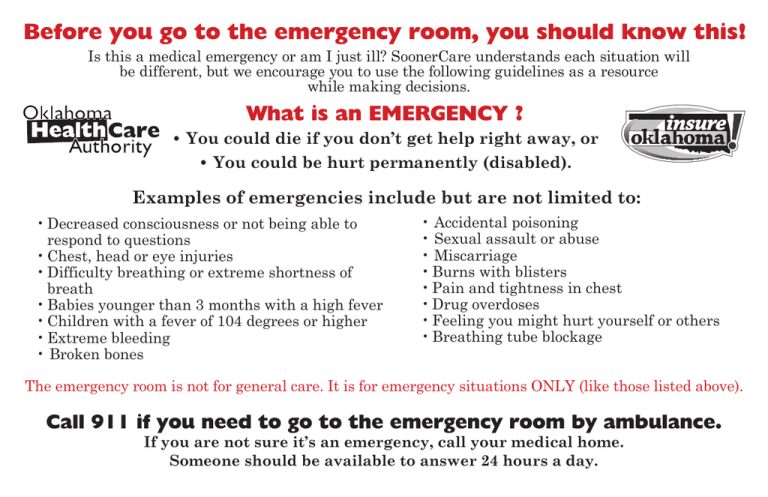
Before you go to the emergency room, you should know this! Is this a medical emergency or am I just ill? SoonerCare understands each situation will be different, but we encourage you to use the following guidelines as a resource while making decisions. What is an EMERGENCY ? • You could die if you don’t get help right away, or • You could be hurt permanently (disabled). Examples of emergencies include but are not limited to: •Decreased consciousness or not being able to respond to questions •Chest, head or eye injuries •Difficulty breathing or extreme shortness of breath •Babies younger than 3 months with a high fever •Children with a fever of 104 degrees or higher •Extreme bleeding • Broken bones • Accidental poisoning • Sexual assault or abuse • Miscarriage •Burns with blisters •Pain and tightness in chest •Drug overdoses •Feeling you might hurt yourself or others •Breathing tube blockage The emergency room is not for general care. It is for emergency situations ONLY (like those listed above). Call 911 if you need to go to the emergency room by ambulance. If you are not sure it’s an emergency, call your medical home. Someone should be available to answer 24 hours a day. !Antes de ir a la sala de emergencias, debe saber esto! Es esto una emergencia médica o soy solo enfermo? SoonerCare entendemos que cada situación es diferente, pero le animamos a que utilice las siguientes directrices como un recurso cuando haciendo decisiones. Una EMERGENCIA significa: •Que usted podría morir si no recibe ayuda inmediatamente, o •Que podría lesionado permanentemente (discapacitado). Ejemplos de emergencias incluyen, pero no se limitan a: •Bloqueo del aparato respiratorio •Dolor y presión en el pecho •Fiebre alta en bebes menores de tres meses •Quemaduras con ampollas •Lesiones en el pecho, en la cabeza o en los ojos •Sobredosis de drogas •Niños con una fiebre de 104 grados o más •Envenenamiento Accidental •Sintiendo que podría lastimarse a sí mismo o a otros •Dificulta para respirar, falta de aire y asfixia •Un aborto •Asalto sexual o abuso •Una disminución en la conciencia o no poder responder preguntas •Huesos rotos •Quemaduras con ampollas Llame al 911 en Oklahoma si necesita ir a la sala de emergencias en ambulancia. Llame a su médico después de la emergencia y cuéntele lo que sucedió. Línea de Ayuda de SoonerCare 800-987-7767 o 800-662-4955(TDD), para personas con impedimentos auditivos) de 8:00 a.m. - a 5:00 p.m. entre semana Si usted no está seguro de que sea una emergencia, llame a su hogar médico. Alguien debe estar disponible para responder las 24 horas del día. This publication, printed by O. U. Printing Services is issued by The Oklahoma Health Care Authority as authorized by Title VI and Title VII of the 1964 Civil Rights Act and the Rehabilitation Act of 1973. 25,000 copies have been prepared and distributed at a cost of $000,000.00. Copies have been deposited with the Publications Clearinghouse of the Oklahoma Department of Libraries. [74 O.S.2001 § 3105 (C)] Order additional copies on the OHCA Website www.okhca.org/pub SCAESP-B4ER-2014
